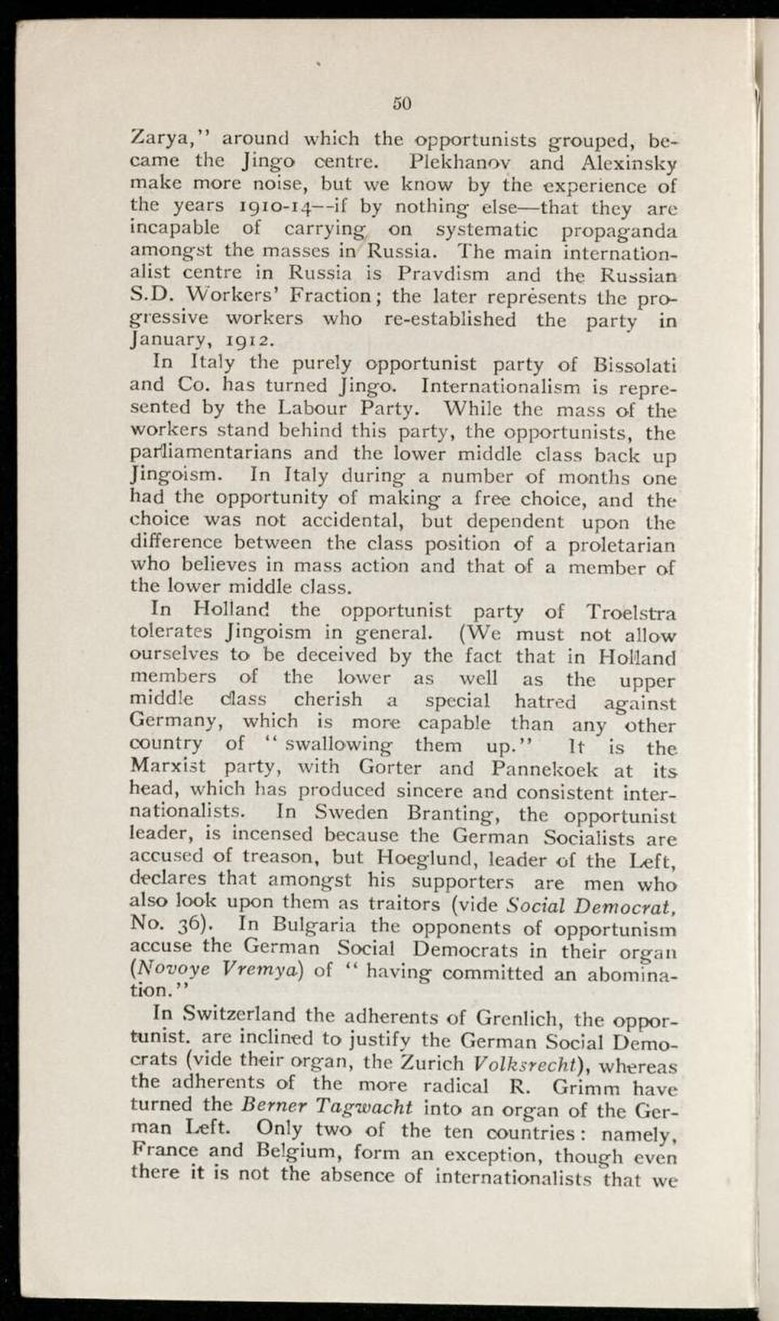50
Zarya," around which the opportunists grouped, became the Jingo centre. Plehanov and Alexinsky make more noise, but we know by the experience of the years 1910–14—if by nothing else—that they are incapable of carrying on systematic propaganda amongst the masses in Russia. The main internationalist centre in Russia is Pravdism and the Russian S.D. Workers' Fraction; the later represents the progressive workers who re-established the party in January, 1912.
In Italy the purely opportunist party of Bissolati and Co. has turned Jingo. Internationalism is represented by the Labour Party. While the mass of the workers stand behind this party, the opportunists, the parliamentarians and the lower middle class back up Jingoism. In Italy during a number of months one had the opportunity of making a free choice, and the choice was not accidental, but dependent upon the difference between the class position of a proletarian who believes in mass action and that of a member of the lower middle class.
In Holland the opportunist party of Troelstra tolerates Jingoism in general. (We must not allow ourselves to be deceived by the fact that in Holland members of the lower as well as the upper middle class cherish a special hatred against Germany, which is more capable than any other country of "swallowing them up." It is the Marxist party, with Gorter and Pannekoek at its head, which has produced sincere and consistent internationalists. In Sweden Branting the opportunist leader, is incensed because the German Socialists are accused of treason, but Hoeglund, leader of the Left, declares that amongst his supporters are men who also look upon them as traitors (vide Social Democrat, No. 36). In Bulgaria the opponents of opportunism accuse the German Social Democrats in their organ (Novoye Vremya) of "having committed an abomination."
In Switzerland the adherents of Grenlich, the opportunist, are inclined to justify the German Social Democrats (vide their organ, the Zurich Volksrecht), whereas the adherents of the more radical R. Grimm have turned the Berner Tagwacht into an organ of the German Left. Only two of the ten countries: namely, France and Belgium, form an exception, though even there it is not the absence of internationalists that we
